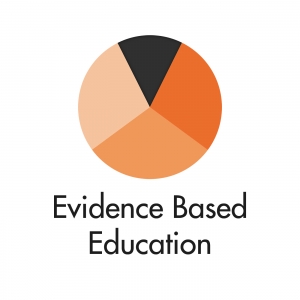Is your school assessment approach effective and efficient in promoting learning?
Jamie Scott, Evidence Based Education
Is your school assessment approach effective and efficient in promoting learning?
How do you know?
There are, arguably, three key pillars of education management: pedagogy, curriculum and assessment. For too long, the third of these has been both under- and misused; the potential for assessment to be a powerful learning process, as well as an accurate barometer of learning itself, is often not realized. Assessment is inextricable from teaching, and the quality of the latter is – in many ways – dependent on the quality of information derived from the former. Great assessment, the type that helps improve teaching and learning, is not a single entity, but it leads to a single point: a meaningful decision which has positive consequences for students’ learning. It is purposeful, manageable, efficient and effective. Great assessment is lean and valuable. It is used thoughtfully to achieve specific aims, ones for which it is better suited than any other tool or strategy a teacher has at their disposal.
Every school has their assessment policy and framework, but is it fit for purpose? Schools use assessment daily, and it can be difficult to stop, step back and review our approach to ensure it is fit for the purpose intended. So, in the spirit of reflection and self-evaluation, here are five questions to ask of your school assessment framework to help determine its efficiency and effectiveness.
- Are we using assessment to measure important aspects of the curriculum?
Assessment, pedagogy and curriculum are inextricably linked and, when the best of these are brought together well, they form the backbone of effective teaching and learning. When assessment is sharply focused on the curriculum, and used as a tool of good pedagogy, teachers can maximise its value to improve the responsiveness of their teaching. After all, how can we know what to teach tomorrow, if we do not know what has been understood today? Effective assessment needs to relate to the curriculum ‘map’, strategically challenging pupils to recall and strengthen the right pieces of learning, understanding and skill.
- Do our assessments measure the things we intend them to measure? Are they fit for purpose?
Form should always follow function in assessment. We must know what we want to measure and why in order to select the right tool to achieve our purpose. An assessment that is ideal to measure progress might be a poor choice for identifying strengths and weaknesses to inform, plan or adapt your next lesson. To assess better, we need to be explicit about purpose:
- The construct: What is the specific knowledge, skill or understanding that we intend to assess?
- The end use: What do we want to do – the interpretation, the decision or action – with the information generated by the assessment process?
- The best tool: What is the most appropriate, effective and efficient way to assess in this instance?
- Are we assessing learning or performance of short-term memory?
What is learning and does every teacher and school share the same understanding? Let’s define learning as both the long-term retention of knowledge, understanding and skill, as well as the ability to transfer these to novel contexts. As such, teaching needs to address and promote learning which is retained and transferable, and assessment needs to be designed to gauge students’ long-term retention and transfer to novel contexts. Does your schools’ assessment approach allow you to reliably demonstrate student knowledge and understanding at the point of initial assessment, and that they able to retrieve that knowledge and understanding 6 weeks later, 6 months later, or a year later?
- How can we be sure that progress is, in fact, real progress and not just measurement error?
Measuring progress reliably is difficult. All forms of educational measurement contain a degree of error and so assessment is less precise than often it is perceived to be – whether that be national tests, classroom quizzes or teacher observation. It is a complex and time-consuming exercise to create an assessment that is sufficiently sensitive to be able to reliably measure progress in a relatively short space of time, so teachers need to understand error in their assessment measurements to make accurate judgements about the needs and progress of pupils.
- Are you using assessment to create learning, not just record the residue of it?
Assessments or tests have traditionally been used to measure learning. However, a constantly growing body of research demonstrates that high-quality tests (think recaps, quizzes and termly tests rather than just past papers) are better learning opportunities than repeated study/revision. One example of such research is Roediger III, H. L., & Karpicke, J. D. (2006). Test-enhanced learning: Taking memory tests improves long-term retention. Psychological science, 17(3), 249-255. The research evidence indicates that the act of responding to questions thoughtfully strengthens a student’s learning; practice testing using well-crafted questions can actually promote learning, making assessment into more than simply a tool for recording data about learning.

Evidence Based Education are the creators of the Queen’s Award Winning Assessment Lead Programme, Assessment Essentials and the new Science of Learning Programme. Trusted by schools around the world, they provide engaging teacher professional development and school improvement services, to improve learner outcomes worldwide and for good.
What do you think about the points raised in this article? We’d love to hear what you have to say.
CONTACT THE AUTHOR

Jamie Scott, Director of Partnerships & External Relations
Evidence Based Education





Leave a Reply
Want to join the discussion?Feel free to contribute!